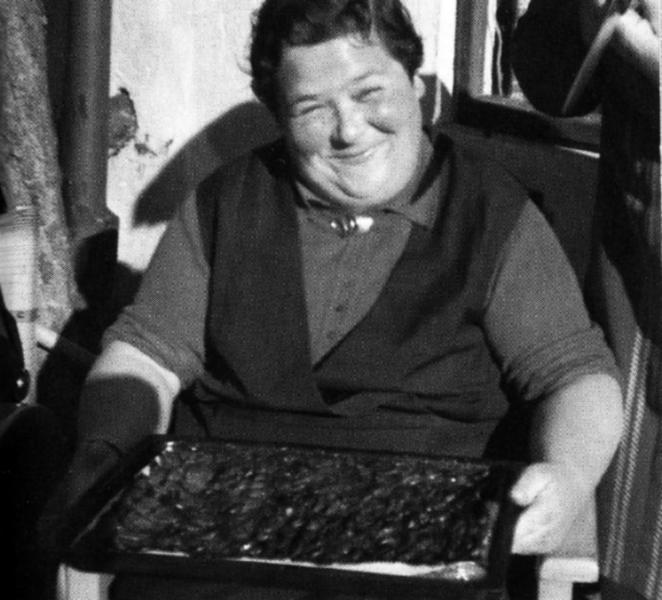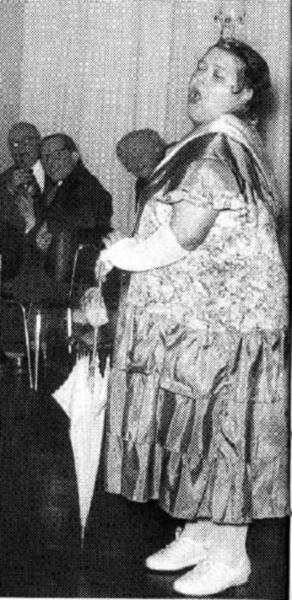Bally Prell
Bally Prell (baptismal name: Agnes Pauline Prell) was born in Munich in 1922 and died there in 1982. She was the
daughter of a folk musician and composer of some popular Bavarian songs, Ludwig Prell. Her brother Ferdinand, twelve years her
senior, was a child star in his father's field of music. He died young, in 1931, when Bally Prell was just nine years old, and
obviously, she was trained by the father to make up for the loss of his son. She became a popular folk singer (popular, that is,
in Bavaria only, since few people outside Bavaria could have managed to understand the dialect she was singing), a good deal
of her repertory being songs written by her father, who would often also accompany her with his band. She acted as a singing
comedian; her (and her father's) most famous song presented her as a rural beauty queen, complete with a beauty queen's fancy
dress, which made for a sharp comic contrast to her ungainly and obese physical appearance. She would live at her parents'
home for their whole life, and never got married.
But her musical ambition was in fact higher: she had a hidden love for classical music, though there is no evidence that she had
ever got musical training other than her father's. She set poems to music in a vaguely Schubertian lieder style, she was an
excellent pianist, and she sang classical music – almost exclusively at home, though, either for herself or for her guests,
mostly accompanying herself at the piano. And she left hundreds of recordings of those home performances, which she made
with an amateur equipment.
All that is certainly unusual enough, but what is even more unusual is that her musical personality was entirely male; she
never sang any female aria or lied. She thought of herself as a tenor, while she was in fact a baritone; this was her natural
voice that she also used for her Bavarian folk songs, but it makes an even more striking effect used in a classical manner and
for classical music. And so she left a plethora of tenor recordings, either transposed down to low baritone key in order to
meet her really low range, or in original key omitting the top notes.
Three of the recordings included here deserve special mention:
- Granada is, to my knowledge, her only recording of non-Bavarian music performed in public, on stage.
- The second Cachés dans cet asile is a "duet" with a Michael Theodore record, to which she sings a baritone line;
her cues are so precise that you wouldn't guess the two singers are not performing together, and perhaps
never met! Plus it's incredible how much more feminine Theodore sounds than Prell...
- In this very special case, I'm including also one recording of the music she spent her professional life with: Die Schneider,
a composition, of course, by her father.
| Bally Prell sings | Italien (Mendelssohn-Hensel)
|
|

